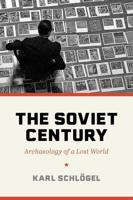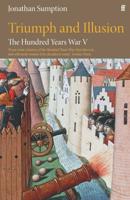Publisher's Synopsis
This is the first comprehensive, multi-author survey of German history that features cutting-edge syntheses of major topics by an international team of leading scholars. Emphasizing demographic, economic, and political history, this Handbook places German history in a denser transnational context than any other general history of Germany. It underscores the centrality of war to the unfolding of German history, and shows how it dramatically affected the development of German nationalism and the structure of German politics. It also reaches out to scholars and students beyond the field of history with detailed and cutting-edge chapters on religious history and on literary history, as well as to contemporary observers, with reflections on Germany and the European Union, and on 'multi-cultural Germany'. Covering the period from around 1760 to the present, this Handbook represents a remarkable achievement of synthesis based on current scholarship. It constitutes the starting point for anyone trying to understand the complexities of German history as well as the state of scholarly reflection on Germany's dramatic, often destructive, integration into the community of modern nations. As it brings this story to the present, it also places the current post-unification Federal Republic of Germany into a multifaceted historical context. It will be an indispensable resource for scholars, students, and anyone interested in modern Germany.










